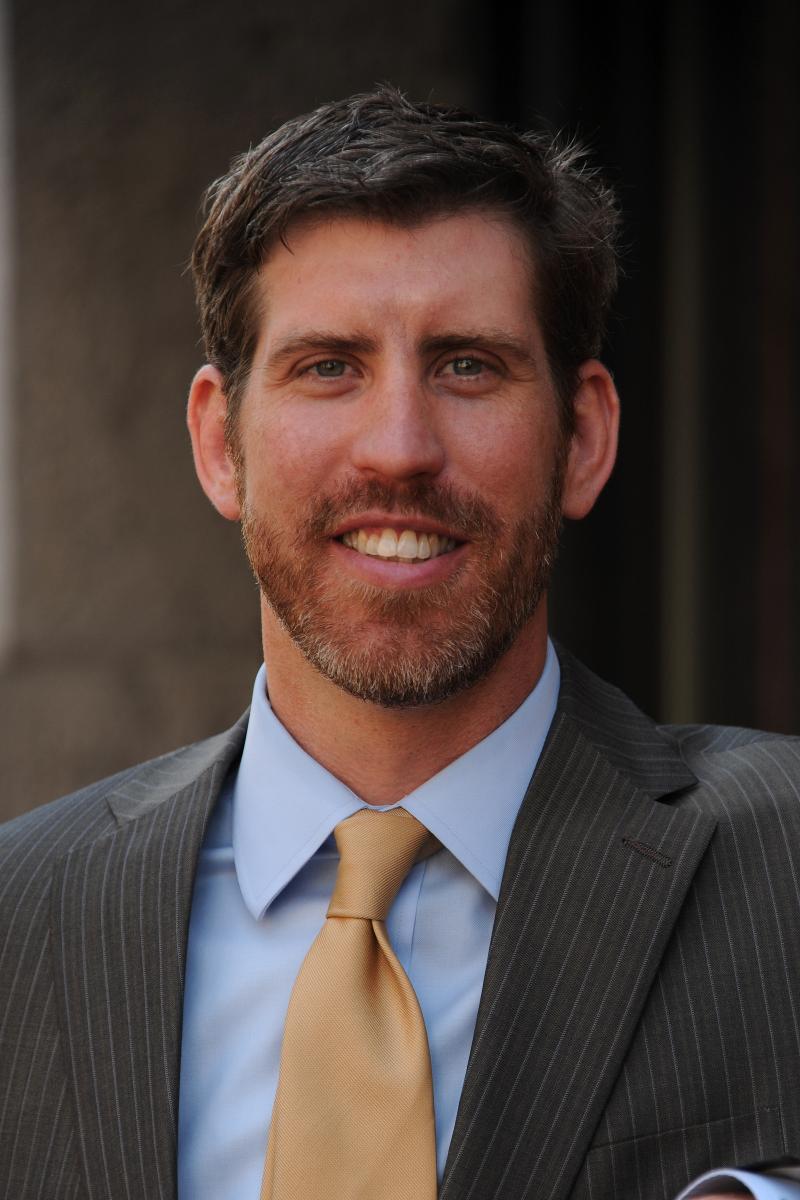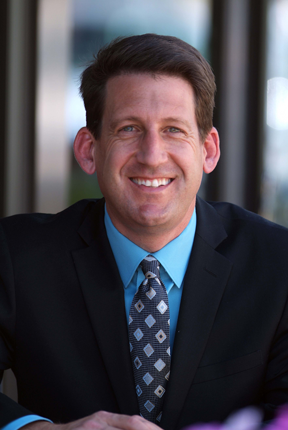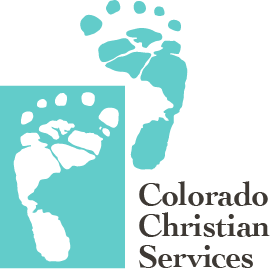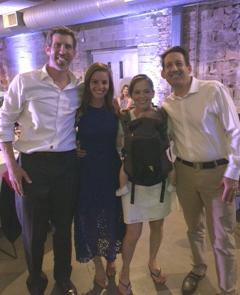

As we near Thanksgiving and the winter holidays, we are reminded of our gratitude for our clients and partners. Thank you for being part of the Grob & Eirich family. As always, if we can be of any assistance to you or someone you know, please don't hesitate to contact our office at 303.679.8266.
Have a very happy Thanksgiving, and enjoy the holiday season!
|
|
 What to Expect When You're Not Expecting What to Expect When You're Not Expecting
 Increasing numbers of couples are delaying having children for professional, educational, and other reasons, and thus are often facing infertility issues as they become older. At age 32, women's fertility begins to decline, and by 37, it significantly declines. Facebook, Google and Apple support employees' family planning on their own timelines by paying up to $20,000 for women to retrieve and freeze their eggs. Increasing numbers of couples are delaying having children for professional, educational, and other reasons, and thus are often facing infertility issues as they become older. At age 32, women's fertility begins to decline, and by 37, it significantly declines. Facebook, Google and Apple support employees' family planning on their own timelines by paying up to $20,000 for women to retrieve and freeze their eggs.
These and many other factors are contributing to couples struggling to have children in a traditional way. Many couples want to thus explore alternative options to become parents.
Grob & Eirich offer consultations on family building options including gestational surrogacy, traditional surrogacy, ova donation, semen donation, embryo donation, domestic infant adoption, international adoption, waiting children adoption, and foster to adopt.
"This is one focus that makes our firm truly unique," says Seth Grob. "We are one of the only law firms in Colorado that has extensive experience in all of these practice areas such that we can share extensive information regarding all the options available to build a family. Most firms don't do assisted reproduction, adoption, and child welfare. And we also have our immigration and international adoption expertise."
A Grob & Eirich attorney meets with the client(s) for 90 minutes to understand their situation, interests, desires and needs. They go over time frames, financial costs, legal risks, referrals and the overall process for each option.
"These consultations address the advantages and disadvantages associated with each option and, most importantly, help clients make an informed and deliberate decision on how best to build their family. We do many of these consultations every month," says Seth.
If you know someone looking at alternative options for having children, please suggest they call our office to make an appointment. We can provide insights to help them determine the best way to create the family they've always wanted.
|

Appellate Advocacy
 |
|
 |
iStock.com/RiverNorthPhotography
|
Grob & Eirich handled six appeals in the Colorado Supreme Court, Colorado Court of Appeals, and the Department of Homeland Security in the past year. These cases dealt with legal issues impacting adoption, assisted reproduction, immigration, child welfare, and family law. Some cases were originally tried at the trial court level by the firm. For others, outside counsel retained Grob & Eirich to take over the appeals due to the firm's expertise.
"Some firms focus only on appellate work; other firms don't do it at all," explains Seth Grob. "We do it as part of our everyday work, seeing cases from the trial court all the way through appeal or helping other attorneys with their appellate cases."
What Should Happen to Frozen Embryos When a Couple Divorces?
 Seth Grob was involved in one of these cases by helping to author an amicus brief filed in the Colorado Supreme Court. Christopher Jackson of Sherman & Howard assisted with the brief, and it was written on behalf of the Academy of Adoption and Assisted Reproduction Attorneys (AAAA), which is a national organization that has a strong interest in the issue being considered. Seth Grob was involved in one of these cases by helping to author an amicus brief filed in the Colorado Supreme Court. Christopher Jackson of Sherman & Howard assisted with the brief, and it was written on behalf of the Academy of Adoption and Assisted Reproduction Attorneys (AAAA), which is a national organization that has a strong interest in the issue being considered.
The case involves a couple with several frozen biological embryos in storage who are now divorced. The woman wants to use the embryos to have a fourth child. The man wants them destroyed. They did not have a contract regarding what should happen to the cryopreserved embryos upon their marriage dissolving.
The brief argues that the Colorado Supreme Court should uphold the Court of Appeals' decision that, in the absence of an enforceable agreement, the Court should apply the "balancing-of-the-interests approach" and give special consideration and weight to a spouse's desire not to have genetic offspring. The brief was submitted to the Supreme Court, and the parties are awaiting a decision.
"Christopher and I noticed this case and asked AAAA if we could file an amicus brief on its behalf," says Seth. "There are well over 600,000 frozen embryos in the United States. This case will have an impact on what happens to some of these due to marriages dissolving. Hopefully, the Supreme Court's decision will bring attention to the importance of couples entering into specific contracts when embryos are initially created and clearly set forth their intentions about what should happen in the case where one spouse dies or the parties divorce."
Indian Child Welfare Act and State Licensed Attorneys
In September 2012, a local county Department of Human Services removed two children, 11 months and 2 1/2 years old, from their home. At the time of the children's removal, the mother was in jail, and the children were found in the home with two adult males, both of whom were intoxicated and unconscious. One of the males was the children's grandfather and a registered sex offender. The younger child was found to have human bite marks on him; the children were dirty and hungry; and a neighbor witnessed the mother giving both children alcohol. The children's fathers were incarcerated out of state. The children were placed in a temporary foster home and, a year later, moved to a long-term foster home where they continue to live.
The birth mother is a member of a Native American tribe. More than a year after receiving notice of the proceedings, the mother's Tribe intervened in the case, as authorized under the Indian Child Welfare Act. The Tribe was represented by an out-of-state attorney who was not licensed in Colorado and repeatedly sought to move the traumatized children to different people who neither knew the children nor were capable of meeting their unique needs.
In 2015, Tim Eirich got involved in the case representing the foster parent, who is also Native American. As part of the litigation, he filed a motion to "prohibit the unauthorized practice of law by using an attorney that is not licensed in Colorado." Tim's argument was that the Indian Child Welfare Act grants the Tribe the right to intervene and fully participate in legal proceedings, but it "neither mandates the right to counsel nor provides an exception to state rules governing attorney regulations and licensure." The Tribe could have either chosen an attorney licensed in Colorado or have their attorney go through the pro hac vice process, which is a procedure for an out-of-state attorney to appear and practice law in Colorado for a particular case. The trial court granted the motion prohibiting the out of state attorney to appear on behalf of the Tribe in the Colorado case and ultimately terminated the parents' parental rights. The trial court also ordered that the children should remain in their current foster home.
The Tribe appealed the decisions, and the case is currently with the Colorado Court of Appeals. Briefing was finished in the summer of 2016, but in January of this year the Court asked for additional briefing. Oral arguments and supplemental briefings are complete, and the parties are awaiting a decision.
"This is a case of national first impression as no other state courts have addressed the issue of out-of-state attorneys representing Native American Tribes without following the required state process." says Tim. "The legal issue is interesting but, more importantly, this decision, like all decisions in these types of cases, will impact the lives of these children."
|

After DACA: Legal Options for Children to Stay in the U.S.
 |
|
 |
iStock.com/rrodrickbeiler
|
On September 5, 2017, the Trump Administration announced the termination of Deferred Action for Childhood Arrivals (DACA). DACA will be phased out gradually.
Current DACA recipients retain the period of deferred action and the employment authorization document (EAD) until the date of expiration, unless otherwise terminated or revoked. Upon expiration, DACA cannot be renewed. No new DACA applications are being accepted. Individuals with DACA are no longer able to travel outside of the United States with advanced parole. If you are a current DACA recipient and have questions about international travel or your DACA's expiration, please contact our office.
DACA recipients are encouraged to seek legal counsel as soon as possible to explore other options for remaining in the United States. For example, those who are under 21 years of age and who have suffered abuse, abandonment, neglect, or something similar by one or both parents may qualify for Special Immigrant Juvenile Status, a pathway to lawful permanent residence and U.S. citizenship. If the DACA recipient has married, he or she may be eligible for lawful permanent residence through a family-based petition filed by his or her US citizen or lawful permanent resident spouse. Additionally, if a DACA recipient has been the victim of a crime, he or she may be eligible for U non-immigrant status. These and other options should be explored as soon as possible.
"There may be a pool of children and adults who did not have an evaluation by an immigration attorney before applying for DACA," says senior staff immigration attorney Katie Glynn. "Every DACA recipient should meet with an immigration attorney and review his or her entire immigration history to see if there are other paths to stay in the U.S. Non-citizens should also know their rights in the event of an encounter with immigration agents."
At least five pieces of legislation are being proposed in Congress to protect the children and adults who qualified for DACA. To read more about these bills, click here.
|

Partner Profile: Colorado Christian Services
 Colorado Christian Services is an adoption agency founded in 1963. It is a state licensed, non-profit child placement agency providing professional counseling services to women with unplanned pregnancies, serving children through foster care, and assisting Christian couples nationwide in building their families through adoption. Their counseling program provides marriage, family and individual counseling on an affordable fee basis in a safe, comfortable environment. Colorado Christian Services is an adoption agency founded in 1963. It is a state licensed, non-profit child placement agency providing professional counseling services to women with unplanned pregnancies, serving children through foster care, and assisting Christian couples nationwide in building their families through adoption. Their counseling program provides marriage, family and individual counseling on an affordable fee basis in a safe, comfortable environment.
"We have placed over 1,200 children in new homes," says Elizabeth Bolz, Executive Director. "I've been here since 1998, and our turnover is so low, we hired our newest person four years ago. That helps us stay very connected to our clients and serve them well."
The focus at Colorado Christian Services is counseling and supporting their clients. "My background is in counseling, and I hire masters-level people," says Elizabeth. "I feel that is really important, for birth moms and adoptive parents, to get the counseling they need. Many of my staff are also adoptive moms. They understand and relate well to their clients. We are a fairly small organization. To us clients are real people, not numbers."
Colorado Christian Services recently switched to Grob & Eirich as its general outside legal counsel. "Elizabeth is professional, hard working and responsible," says Seth. "Colorado Christian Services is dedicated to doing what's best for kids. We really enjoy working with them."
"Grob & Eirich has a great reputation and so much knowledge of adoption law. It's amazing working with them. I feel like we are in great hands," confirms Elizabeth.
|
|
 In House News
Seth Grob Helps Spanish-Speaking Children Bike
This past summer, Seth Grob volunteered with ViVe, a unique nonprofit that works with inner city Hispanic children who lack the resources to participate in sports and fitness opportunities. Over the past two years, Vive has served hundreds of children by providing them the opportunity to learn how to cycle, swim and run, so they can participate in triathlons and other events.
"I had an amazing volunteer experience, teaching about 25 children every other week how to cycle," says Seth. "The kids were ages 6 to 15. I would teach them riding skills and take them out in our state parks to learn how to cycle long distances.
These kids would likely never otherwise have this opportunity. It was a blast, and I can't wait to do it again starting next spring!"
Tim Eirich is Named Co-Chair of the AAAA Mid-Year 2018 Conference in Denver
Tim Eirich has been named co-chair of the Academy of Adoption and Assisted Reproduction Attorneys September 2018 conference to be held in Denver at the Brown Palace. The conference will focus on trial skills in contested adoption, appellate advocacy and legislative advocacy.
"I'm excited to work with my co-chair, Collen Quinn, who is an incredible leader and world class attorney from Richmond, Virginia," says Tim. "It's a real honor to be involved with this conference."
Katie Glynn Gets Married in June
 In June, Katie Glynn married her husband, Michael Baxter, in the Catholic Church. All of their family and friends shared the day. Katie and Michael planned a formal wedding but their young children had other ideas. In June, Katie Glynn married her husband, Michael Baxter, in the Catholic Church. All of their family and friends shared the day. Katie and Michael planned a formal wedding but their young children had other ideas.
"Our 3-year-old son, Jack, refused to put on his suit so he was in his basketball shorts and the shirt he slept in. Our 1-year-old, Annie, took off her shoes and socks and was walking around the church during the ceremony. Jack took an apple up to the altar and appeared to be break-dancing next to the priest. They wouldn't stay seated with my sister despite her bribes," recalls Katie.
She loves that everyone from Grob & Eirich attended. "It was amazing to me that Seth, Tim, Kellyn, and Ondine, and their families, were there," says Katie. "They need to know how much I love working at Grob & Eirich. I feel so valued and cared about. This family-building law firm has become like family to me."
|
Presentations and Committees
Seth Grob
Family Formation Charitable Trust of AAAA, Co-Chair of the Grant Review Committee [2017-2018]
Tim Eirich
Domestic Relations Judicial Institute, "Special Immigrant Juvenile Status," (Denver, June 2017) [with Katie Glynn, Ashley Harrington, Judge Woods]
Katie Glynn
Colorado Chapter of the American Immigration Lawyers Association (AILA), Co-Chair of AILA-USCIS Liaison Committee (2017-2018) [with Jennifer Casey]
Domestic Relations Judicial Institute, "Special Immigrant Juvenile Status," (Denver, June 2017) [with Tim Eirich, Ashley Harrington, Judge Woods]
CBA/CLE Representing Immigrants in a New Era of Immigration Enforcement, "Special Immigrant Juvenile Status," (Denver, September 2017) [with Ashley Harrington]
Kellyn Nagel
Colorado Bar Association, Juvenile Law Section Executive Council - Secretary (2017-2018)
|
|
|
|
|
|